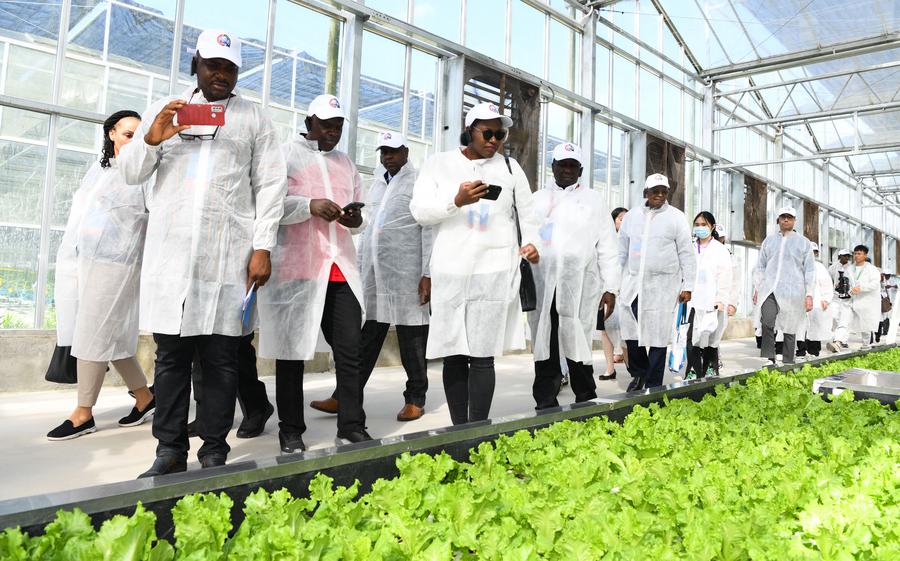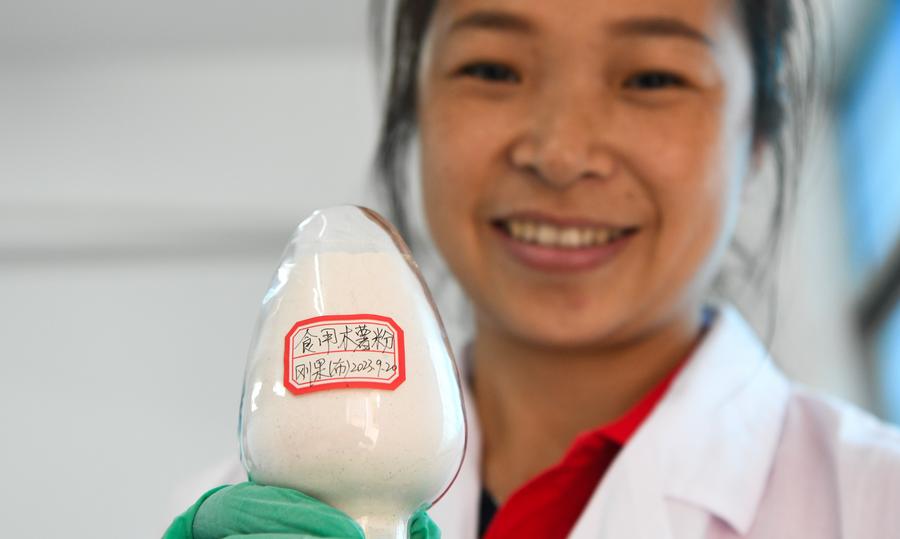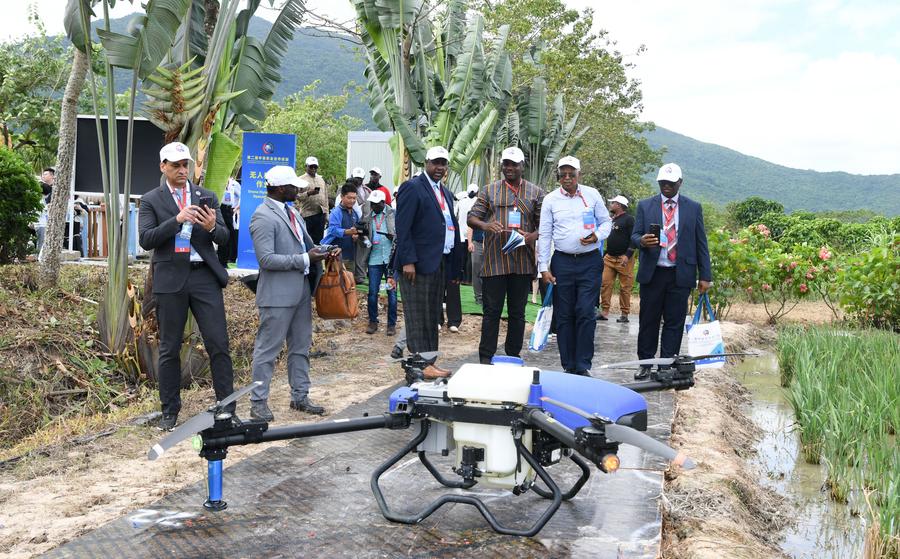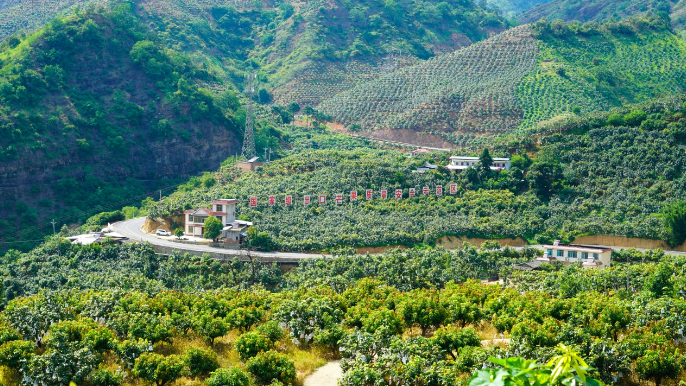
by Olatunji Saliu
ABUJA, July 27 (Xinhua) -- For the past two decades, Nigerian farmer Bala Yusuf has tended with meticulous care the cassava farm, his family's main source of livelihood.
Yusuf, now aged 46 and father of five, begins each day's work together with his wife before sunrise in Kuje, a low-income suburb of Abuja, the Nigerian capital, by peeling cassava tubers and soaking them in water for several hours to remove their bitterness.
At midday, his wife gets busy, cooking the tubers over a crackling fire, transforming them into a soft, tender meal. Then their eldest son takes the cooked cassava to the local market and earns about 10,000 nairas (6 U.S. dollars) daily from selling the food. That's the only source of income for the whole family.
Despite their exertions, Yusuf and his family, like many other small-scale cassava farmers in Nigeria, have been faced with significant challenges. These include low yields, limited access to improved farming techniques, and a lack of mechanization that has continued to hamper the ability to maximize production and improve living standards. However, that is about to change thanks to a new initiative.
In November 2023, agricultural experts from the Chinese Academy of Tropical Agricultural Sciences (CATAS) unveiled ambitious plans to enhance cassava cultivation across Africa, a continent heavily reliant on starchy tubers for sustenance. This initiative aims to introduce new cassava varieties and advanced farming techniques to over 500,000 hectares of land across several African countries, including Nigeria.

In Nigeria, CATAS is partnering with the National Root Crops Research Institute (NRCRI) established over a century ago in Umudike in the southeastern state of Abia. Their collaboration is set to transform cassava farming by improving productivity and yields, providing training for local farmers, scientists and students as well as introducing innovative agricultural practices and technologies.
The partnership is a crucial development in Nigeria's quest for food security, Chiedozie Egesi, executive director of NRCRI, told Xinhua in an interview.
Egesi said that by leveraging the CATAS expertise in tropical agriculture, Nigerian scientists and farmers will gain access to advanced knowledge and tools to improve cassava cultivation.
"So, we have entered a new chapter because, now, we will be able to exchange germplasm, exchange technologies ... in terms of capacity building," Egesi said, noting that the support from CATAS will help improve yields and enhance the livelihoods of local farmers.
Cassava has become a cornerstone of Nigeria's food security ambition, with various food forms being produced from it, he said, noting that the partnership with CATAS would bring new opportunities to local farmers.
The partnership includes but is not limited to the formation of a large demonstration base for the CATAS African cassava yield doubling program and a China-Nigeria cassava joint laboratory. These facilities are expected to serve as centers for research, training, and promoting best practices.

Beyond individual benefits, the CATAS-NRCRI collaboration is poised to have a broader impact on Nigeria's agricultural sector, noted Pa Philip Ejikeme, a 72-year-old tribal king in Abia.
Identifying enhanced productivity and market access for cassava crops as some of the low-hanging fruits of the partnership, Ejikeme, one of NRCRI's successful local trainees on cassava processing and agronomic practices, said the initiative would go a long way to lift small farmers out of poverty and bolster Nigeria's food security.
Cassava farming in Nigeria is widespread, with significant variations in production across different states. Cassava leaves and roots are processed locally into products including garri or cassava flour, starch, glucose syrup, animal feed, sweeteners, biodegradable products, and ethanol, among others, in the most populous African country.
Nigeria produced at least 63 million metric tons of cassava tubers in 2021, accounting for one-fifth of the global total that year, according to a report citing data from the United Nations Food and Agricultural Organization.
By adopting modern farming techniques and improved cassava varieties, more local farmers believe that the partnership between CATAS and NRCRI could be transformative with the introduction of mechanization on cassava farms. This could also reduce the labor-intensiveness of cassava farming and make it more efficient and less physically demanding.
"This is the dawn of a new era in cassava production for us in Nigeria," said Augusta Amadjoi, vice president of the local Cassava Seeds Entrepreneurs, adding the partnership with the Chinese agricultural scientists will bring a brighter future for Nigerian cassava farmers.
News report Link:https://english.news.cn/20240727/91d94598d76840e7b0d12e730c040915/c.html








 琼ICP备11000394号
琼ICP备11000394号 琼公网安备 46010602000325号
琼公网安备 46010602000325号